| Mention Colchicums and most people think of
Autumn Crocus to which they are no relation.
Most gardeners are familiar with C. speciosus and
C. autumnale. Both are available in many forms
especially C. speciosus. Less well known are C.
byzantinum, variegatum and agrippinum. |
|
Crocus are in the family Iridaceae that includes
Iris, Crocosmia and Gladioli.
Colchicums are Amaryllidaceae, which
includes Galanthus, Leucojum and Narcissus.
Colchicum means from Colchis,
the Black Sea region of Georgia (where Jason and the
Argonauts sailed to find the Golden
Fleece), but they can be found
right across Europe to central Asia |
|
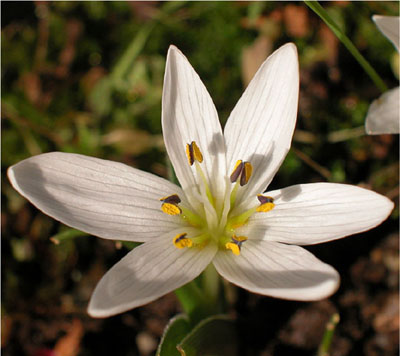 |
| Colchicum
hungaricum ‘Album’,
native to Tajikistan
and Afghanistan |
|
|
|
| Most gardeners are not familiar with the winter
flowering Colchicums. These are much smaller than their
large, late summer / autumn flowering relatives that
appear without leaves. Winter flowering Colchicums
flower with leaves present.
These plants are suitable for troughs and pot
culture but watch out for slugs that will eat the
flowers as they appear. Wherever they are grown about
50% drainage is important, with the addition of some
leaf mould. The ‘bulb’ should be planted about
twice its height. In bulb frames try to grow them in 1
litre 'long tom' pots.
Flowering usually starts in late November and
continues to late February. Cool periods can extend
flowering time. They are at their best where winter
sun will open the
flowers |
|
|
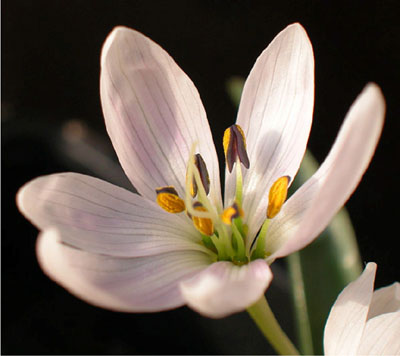 |
| Colchicum
hungaricum ‘Velebit Star’, found in Croatia |
|
|
|
|
|
|
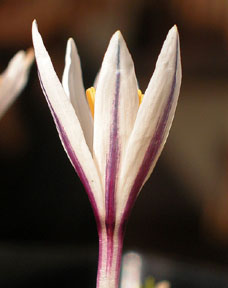 |
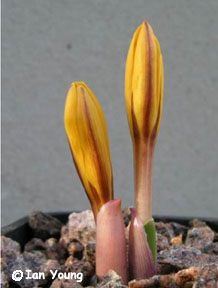 |
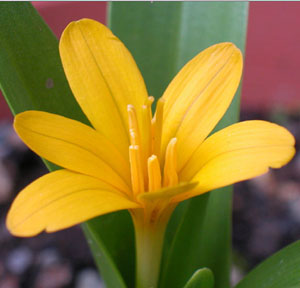 |
|
Colchicum
kesselringii |
Colchicum
kesselringii x luteum |
Colchicum
luteum |
|
| Colchicum
kesselringii from central Asia is the only one to have
striped flowers. Colchicum luteum is also from
central Asia, and Colchicum kesselringii x luteum is
found where they occur together. |
|
| |
|
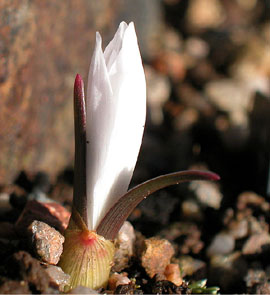 |
| Colchicum
munzereum |
| from
Turkey |
|
|
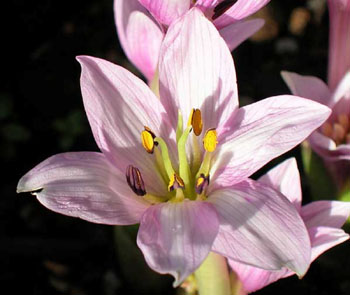 |
| Colchicum
szovitsii ‘Eric Pasche’ |
|
from Caucasus, Iran and
Turkey |
|
|
|
|
|
